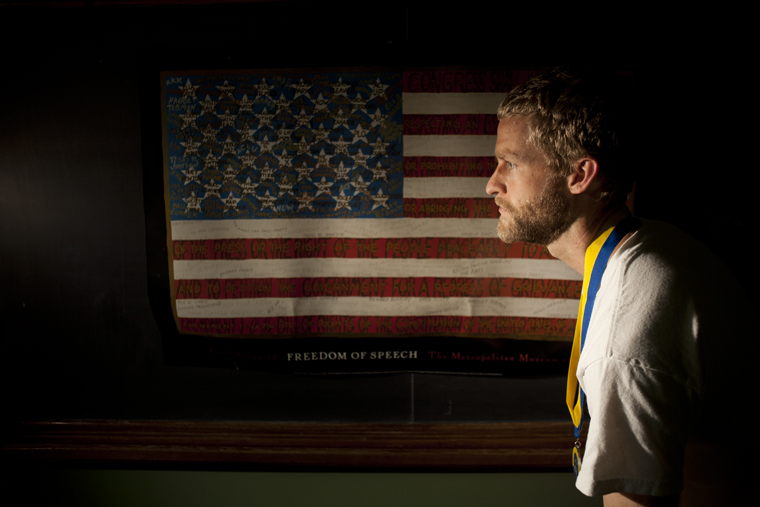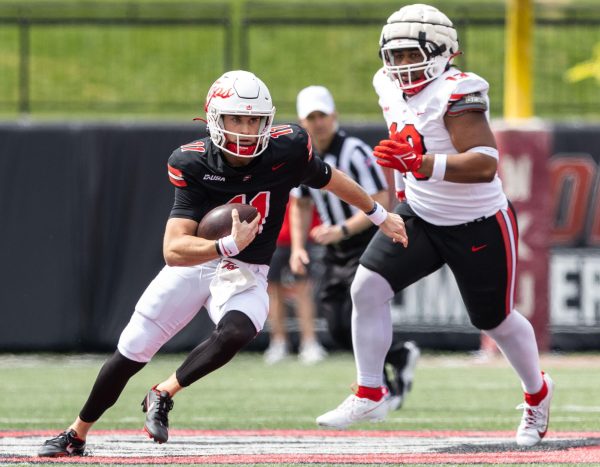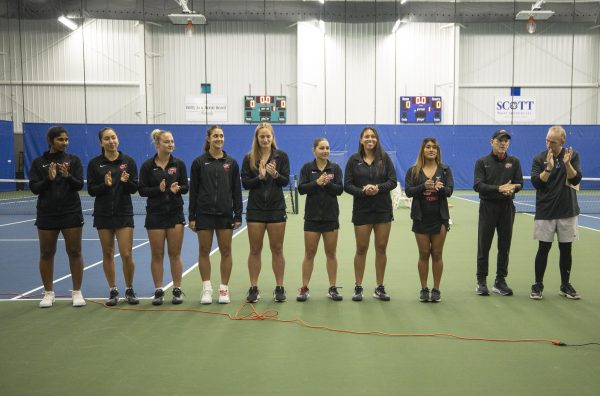WKU instructor completes second Boston Marathon
April 26, 2011
Those who know Cort Basham associate the interdisciplinary studies instructor with many different roles.
Most often, acquaintances see him play the roles of teacher, father and husband.
But to the members of the Bowling Green Road Runners Club, Basham is the nutrition expert and marathoner who just completed his second Boston Marathon.
Basham finished 2,685th out of the 24,338 starters with a time of 3:08.33 during the 115th Boston Marathon on April 18.
“I’ve heard it described as a 26-mile victory lap,” Basham said. “Getting there is the accomplishment — not necessarily running the race itself.”
That’s because the Boston Marathon requires participants to qualify by meeting a designated time standard that corresponds with their age group and gender.
Because the 34-year-old ran under three hours and 10 minutes at a marathon in the past year, he was allowed to register.
“Not everyone can play in the Super Bowl,” Basham said. “Not everyone can play in the World Series, not everyone can play for the Lakers or the Celtics, and not everyone can run in the Boston Marathon, but 27,000 people can.”
Basham said qualifying times are increasingly becoming faster, and registration for the field capacity filled in just eight hours for Boston.
He ran his first Boston Marathon in 2008 and has run seven other marathons. This was his first time repeating the 26.2 miles on the same course.
But the WKU instructor wasn’t always the runner he is now.
Graduating as a Hilltopper in 2001, he said he “just didn’t feel good, didn’t feel fit.”
Basham began running two days a week, which turned into completing a few 5ks, or 3.1 mile races. He then found himself running the distances of a half-marathon, which is 13.1 miles.
“I wasn’t sure about the whole marathon, long-distance running thing,” Basham said. “But the more I did it, you adapt, and it gets easier on you. I just really enjoyed the challenge. Distance running is more about energy management than it is about speed.
“If you aren’t trained and don’t strategize, 26 miles will break you. It is much more of a chess match with yourself.”
Basham met up with a group of men and women in the Bowling Green Road Runners Club, and the idea of running a marathon started to grow.
The club has created a social aspect of running that a lot of runners miss out on, said Brian Packard, president of the club. Packard ran Boston as well.
“For the most part, running is not about competing with other people,” he said. “The only part that is a race is the last tenth of a mile. The whole rest of the time, you’re by yourself. It is like golf in a sense. You are really playing against yourself more than you are anybody else.”
Jeff Stein, former president and now treasurer of the club, completed his 14th Boston Marathon and 10th in a row this year.
“There’s Cort, Brian and me, and four or five others that run together pretty regularly,” Stein said. “I don’t know if we talk each other into it or not. We run together, and it contributes to all of us still running these marathons.”
Since Basham completed his first marathon in the fall of 2005, he said he has found a support system from the group of other runners.
“In any subculture, you need people that are as crazy as you are,” Basham said. “Whether you’re in a band, or you are in a knitting club, you all understand the language. You understand what drives you to do this thing that normal people wouldn’t want to do.”
Basham said he doesn’t have an ultimate goal in marathoning, but he would like to be able to run the Boston Marathon every few years.
“I’ve always said that I don’t really run marathons to achieve anything great,” he said. “I run marathons to discover my limits.”























